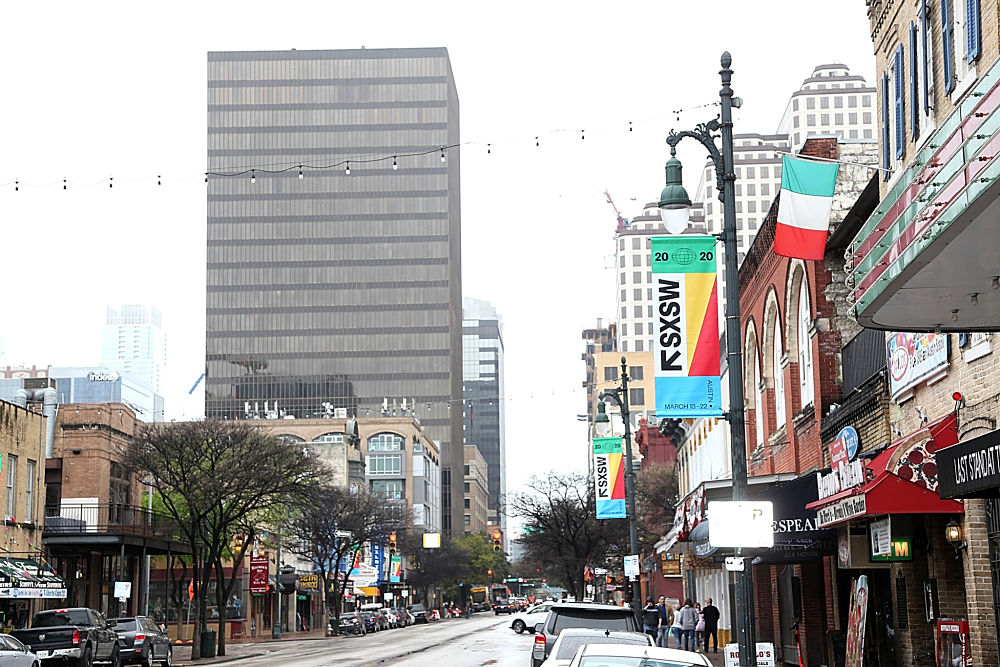Last month, the clouds were just beginning to gather over the American music business as the COVID-19 coronavirus spread throughout Asia and beyond. X Ambassadors had been among the first U.S. bands in January to cancel shows in China. By late February, Green Day and Avril Lavigne canceled upcoming tours of Asia, and in the early days of March, the drops of news became a downpour.
Mariah Carey was the first major artist to postpone a concert in America, albeit not on the mainland but in Hawaii. And on March 6, the biggest domino fell that set off a flurry of other announcements. The city of Austin, Texas made the decision to not host the South-by-Southwest festival for the first time in 34 years, a week away from when SXSW 2020 was set to begin. SXSW is not refunding ticket purchases, but while they’re avoiding that particular financial burden, it’s clear that there are no winners here: three days after the cancellation, SXSW laid off about a third of its 175 year-round employees, signaling just how major the impact would be on the festival’s long term – an unnamed SXSW official told The Austin Chronicle that the staff reduction was “the only way to stop the bleeding.”
The other biggest springtime festival, Coachella, has been moved to October. “For me personally, I felt like the second SXSW canceled, it brought [odds of] Coachella being canceled to 50%,” says Chris Crowley of Salty Artist Management, whose clients include Chicago indie-pop band Beach Bunny.
“On my end, I look at a band like Beach Bunny, who is playing Coachella and Primavera, I think there’s a very wait-and-see territory that we’re in right now. These events cost lots of money — in terms of flights, lodging, payroll for crew — it’s becoming more and more of an expense,” says Crowley.
On March 9, Pearl Jam announced that it would be postponing the entire North American leg of their upcoming tour. Their opening act, ex-Red Hot Chili Peppers guitarist Josh Klinghoffer’s new solo project Pluralone, was in Pearl Jam’s hometown of Seattle, Washington, one of the U.S. cities hit hardest by COVID-19 so far, when he got the news that his schedule for the next few weeks had suddenly cleared. “I don’t consider myself the biggest germophobe. But it’s more just an unease of leaving the house and feel like you have to run to the bathroom and wash your hands every time you touch a door handle,” Klinghoffer says as he’s driving back to Los Angeles from Seattle. “I don’t know how much going out or hanging out I’m supposed to be doing. And you can turn this into a positive. The best way would be is to isolate and be creative and get stuff done. That’s what I hope to do.”
With acts like Pearl Jam postponing dates, it’s clear that nobody is too big for their plans to be affected by COVID-19. Still, some artists are hanging onto the hope that they’ll still perform to fans this spring and summer. Justin Bieber has cited the coronavirus as the reason that some of his upcoming stadium shows have been moved to smaller arenas — though many suspect that the performance of his latest album is a factor — he may be optimistic to still keep the tour dates on his schedule.
Small and mid-sized touring bands have long had razor-thin profit margins if live performances weren’t an outright loss leader to help with other revenue streams. And even the bands that may want the show go on may not have a choice, given how essential insurance is to most tours. “All the bands cancelling shows because of coronavirus are doing so because their insurance companies updated their policies to not cover cancellations due to the virus,” Against Me! frontwoman Laura Jane Grace tweeted on March 5. “I know because ours did the same.” As of press time, Against Me!’s North American tour is still proceeding as planned.
Tommy Dietrick, who runs the Desert Stars Festival every year in Joshua Tree, California, just made the difficult decision to push back this year’s event six months from March to September. “The funny thing is, even being a more small event or niche event, we go through almost the same permitting process that a large event like Coachella goes through,” Dietrick says. “That means everything from environmental and health services, to fire marshall and sheriff approval, to building and safety to ABC licensing, I think it ends up being somewhere between eight and 12 different agencies that I have to correspond with to do the event. But so far, everyone has been overwhelmingly supportive [about postponing]. The consensus is generally, this is not a good time to do a gathering.”
Desert Stars has already reconfirmed most of its acts, including headliner Mercury Rev, for the new dates. And though he may be in the fortunate minority, Dietrick says that the decision to postpone, which he had to make less than a week after beginning to worry about COVID-19, has so far gone relatively smoothly. “I’ve already got all my artists’ flights refunded with no cancellation fees, I did not expect that. I thought I was just gonna eat that cost.”
In a concert industry that’s been increasingly consolidated since Live Nation and Ticketmaster merged in 2010, there are companies that may survive this. However, Live Nation Entertainment’s stock has suffered badly in the recent Wall Street crash (down nearly 17% as of March 12). While more necessary forms of public gatherings, from workplaces to schools, may attempt to get back to normal as soon as public health officials deem it possible, leisure industries like the concert business may stay off track for longer, particularly if COVID-19 continues to spread throughout the summer concert season when the most money is made. It will already take months to recover, but in a matter of days, the recovery time could look more like years.
Additional reporting by Daniel Kohn





